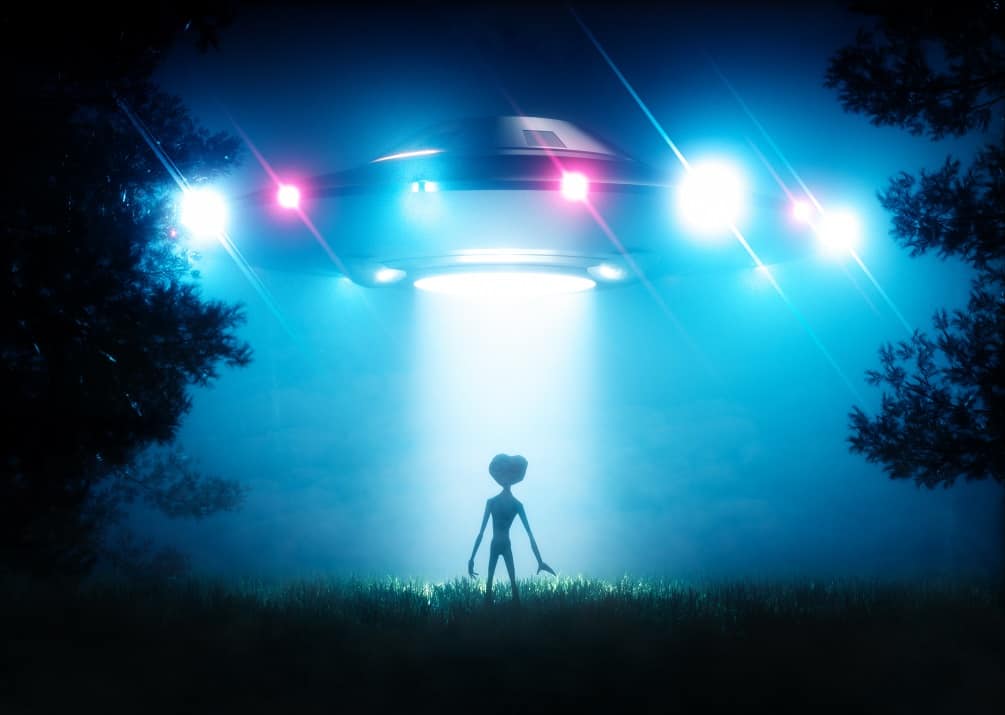How Would Mankind React To The Ultimate Proof Of Alien Life?
A study has reflected on how humanity will react when we finally come across the ultimate proof of alien life: how are we going to assimilate it? Will we feel threatened and react with horror? Shall we embrace alien life as a development, and are we going to understand it? In 1938, Orson Wells created a radio adaptation of Hg Wells War Of The World. The result? Total panic: The first two-thirds of the one-hour broadcast was presented as a series of simulated news bulletins. The first news update interrupted a program of dance music to report that a series of odd explosions had been spotted on Mars, which was followed soon thereafter by a seemingly unrelated report of an unusual object falling on a farm in Grover’s Mill, New Jersey. Martians emerged from the object and attacked using a heat ray during the next interruption, which was followed by a rapid series of news reports describing a devastating alien invasion taking place across the United States and the world. Now, a new study by the University of Arizona asked people how would they feel about the discovery of alien life. The result took experts by surprise. “If we came face to face with life outside of Earth, we would actually be pretty upbeat about it,” said Arizona State University Assistant Professor of Psychology Michael Varnum. (Shutterstock) “So far, there’s been a lot of speculation about how we might respond to this kind of news, but until now, almost no systematic empirical research,” says Dr. Varnum, who presented his findings at a press conference this at the annual meeting of the American Association for the Advancement of Science (AAAS), which is held in Austin, Texas, United States. In a pilot study, Dr. Varnum and his colleagues analyzed the language in newspaper articles about potential discoveries of extraterrestrial life in the past. Dr. Varnum aimed to address the nature of reactions to the discovery of extraterrestrial life using a software program that quantifies emotions, feelings, impulses and other psychological states in written texts. Dr. Varnum and his team looked at the 1996 discovery of possible microbes on the surface of Mars, the discovery of a periodic oscillation around Tabby’s star in 2015, which was thought to indicate the presence of an extraterrestrial megastructure; and the discovery in 2017 of a number of exoplanets similar to Earth in the habitable zone of a star. This analysis revealed that the language in the coverage of these events showed significantly more positive than negative emotions. In a separate study, the team asked more than 500 different participants to write about their own hypothetical reactions and humanity’s hypothetical reaction to the announcement that extraterrestrial microbial life had been discovered. The responses of the participants also exhibited significantly more positive than negative emotions, both when contemplating their own reactions and those of humanity as a whole. “I would have some excitement about the news,” one participant said. “It would be exciting even if it was a primitive form.” Dr. Varnum explained that the studies demonstrate that “taken together, this suggests if we find out we’re not alone, we’ll take the news rather well.” “In summary, the results of this study suggest that people believe, on the whole, both themselves and humanity will respond in positive ways if a confirmed discovery of extraterrestrial life is made,” he said. “I would qualify that by saying that if the intelligent life discovered was sort of an armada of hostile warships entering the Solar System, the no I don’t imagine you would see this pattern,” concluded Dr. Varnum. Featured image credit: Shutterstock.
